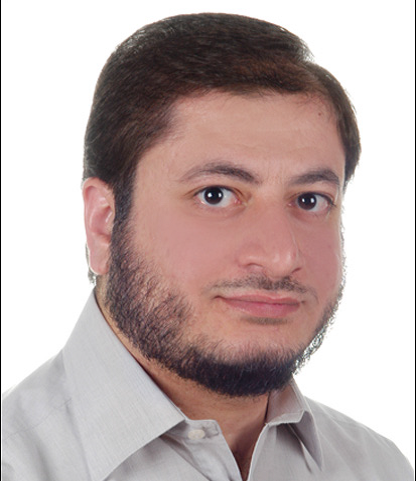The events of 9/11 and the subsequent US invasions of Afghanistan and Iraq have ushered in a period of instability in the Middle East. Multiple regional and extra-regional powers are currently locked in a battle to expand their influence within the Arabian Gulf, forcing the members of the Gulf Cooperation Council (GCC) to reformulate their security strategy. GCC-Iraqi relations are a key component of GCC policy. This workshop aims to discuss the development of GCC-Iraqi relations and their prospects. Special emphasis will be laid on the consequences of the pullout of US forces from the region.
3 DAYS / 12 Workshops
MORE THAN 300 ACADEMIC PAPERS
Numerous international interests face off in the Arabian Gulf. The region’s centrality to
world energy markets ensures that the actions of extra-regional players have an important
role in determining the balance of power therein. One of the most recent disruptions to
the status quo has been the emergence of radical groups as threats to US interests and the
subsequent US-led war in Iraq. While the consequences have been manifold and
2
complex, one of the more prominent outcomes has been a substantial expansion in the
Iranian sphere of influence, especially in Iraq, Syria and Yemen.
The Gulf Cooperation Council (GCC) states have not stood by idly, but have been
reshaping large components of their foreign strategy. Looking inwards, the GCC states
have continued to explore integration along economic, diplomatic, political and security
dimensions. Looking outwards, the GCC states have reassessed existing long-term
strategic partnerships, such as those with the US and UK, and looked to expand others,
such as those with Turkey and India. An important dimension of GCC strategy has been
relations with Iraq. GCC-Iranian rivalry is currently the primary narrative in the Arabian
Gulf, and so GCC relations with Iraq are to a significant extent mediated by relations
with Iran. Nevertheless, the GCC has a long history of interacting with Iraq directly,
creating a more nuanced bilateral relationship. This workshop aims to discuss the
development and prospects of GCC-Iraqi relations. There will be a particular emphasis
on the prospects for relations in light of the withdrawal of US troops from Iraq and what
opportunities or constraints such a move represents.
The GCC states privately and publicly opposed the US invasion of Iraq. Early efforts to
establish diplomatic ties with the new government failed dramatically when the Iraqis
could not even guarantee the safety of GCC representatives. Since then, relations have
arguably deteriorated, as reflected in the recent border disputes between Kuwait and Iraq.
The prospects for rehabilitation currently seem dim with a potentially relevant side-story
being the rapidly increasing oil production in Iraq, which has already overtaken Kuwaiti
output, and could have significant consequences for the other GCC oil producers.
Optimally reconfiguring their strategies in response to the two wars has been an arduous
task for the GCC states. Other contemporaneous developments – coincidental or
otherwise – have changed the rules of the game, rendering the task even more precarious.
Some of these merit particular attention.
First, the neutralization of two of Iran’s archrivals allowed the Islamic Republic to direct
resources towards its missile systems and its nuclear program, plunging the region into
further instability. Much to the chagrin of Western politicians, one of the most salient
results has been a tripling of oil prices since 9/11.
Second, the (seemingly unending) Great Recession has forced a rethink of the US
international defense policies, including its capacity to deploy troops in areas such as
Iraq. Democrats and Republicans are currently oceans apart on what policies best serve
US interests; however, one of the rare areas of legislative and executive consensus has
been the issue of major cutbacks in the defense budget. More worryingly for the US
Department of Defense, a $600 billion spending cut is hanging over its head if the US
government fails to slash its ballooning deficit. General Martin Dempsey, chairman of the
Joint Chiefs of Staff, has already been wheeling out management-consulting rhetoric
about the ‘benefits’ of a smaller military: “Capability is more important than size… This
budget does not lead to a military in decline. Rather it matches capabilities to needs.” The
Arabian Gulf currently boasts a huge US military presence: over 50,000 combat
3
personnel stationed in multiple bases and 25 warships supporting two aircraft carriers.
Doubts over its sustainability have started to influence the GCC states’ security strategy,
including the components that relate to Iraq. This is further complemented by the
announcement in Washington about the “pivot” to Asia.
Third, the last 30 years have witnessed an expansion in the role of non-state actors
(NSAs) in international relations, including the GCC. The US invasions were to a large
extent triggered by the activities of Al-Qaida, an archetypical NSA. Today, Al-Qaida is
one of a litany of NSAs that influence the GCC states’ strategic goals in Iraq. Iraq itself
remains wracked by instability, opening the door for networks of religious extremists
such as the Quds Force. In fact, some of the NSAs active in the region are responsible for
the increased sectarianism witnessed in the wake of the Afghani and Iraqi wars. These
NSAs often transcend the political separation between the GCC and Iraq, creating serious
strategic challenges for policymakers on all sides.
Finally, the Arab Spring has created a cloud of uncertainty over the Middle East,
compounding the effects of Iran’s nuclear ambitions. Previously stable alliances have
been heavily strained, both within the region and between regional and extra-regional
players. The new equilibrium balance of power is yet to be determined, inviting feverish
cross-boundary interference — overt and covert — from across the world, in turn
accentuating the downside risk of strategic planning.
GCC-Iraqi relations are important determinants of the new order emerging in the Arabian
Gulf. The sheer pace of change means that a comprehensive assessment of the many
issues outlined earlier is yet to be completed. This workshop aims to help rectify that
deficiency.
